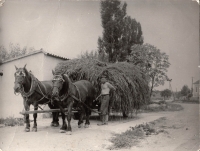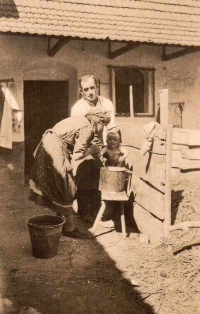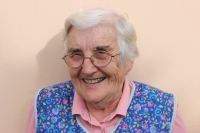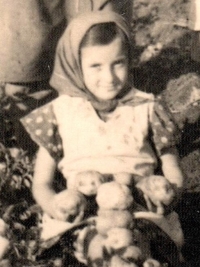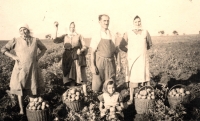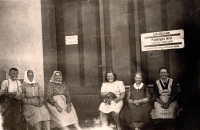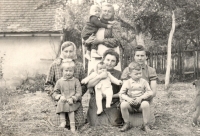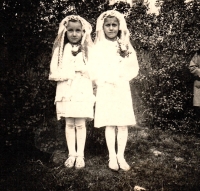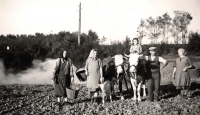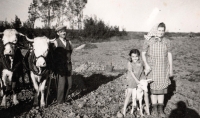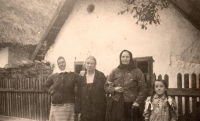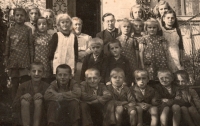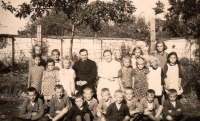You don’t have to worry yet, wait for the others to come after us

Download image
Marie Dobešová, née Polická, was born on July 7, 1934, in Přeskače in the Znojmo region. Her parents – Ludmila, née Fialová, and Jan Polický – owned a farm in the village, which helped them survive the wartime. During the war, Marie entered the first grade of Preskače elementary school. She lived the last days of the Second World War with her family in a basement shelter. She remembers the bombing and the arrival of the Soviet liberators. In 1949, she entered the agricultural school in Rouchovany. During her studies, she became a victim of the campaign against Milada Horáková when she unknowingly signed the resolution for her punishment. In 1958, Marie married Jan Dobeš - together, they raised six children. Under increasing pressure, the family finally had to join a unified agricultural cooperative (JZD) and thus lost their fields. Marie and her husband worked at the JZD until their retirement. At the time of filming the interview (2021), Marie Dobešová lived in her native house in Přeskače.
